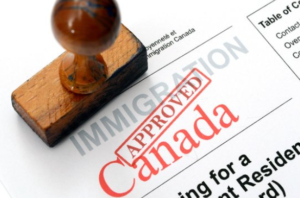Immigration News for January. Weber Immigration Consultants present a review of Canadian immigration news for the second half of January 2023. Follow us for the latest updates and news about Canadian immigration.
Canada invited 5,500 candidates through Express Entry
Table of Contents
ToggleOn January 18, 2023, Immigration, Refugees and Citizenship Canada (IRCC) held the second Express Entry draw of 2023. In draw #238, IRCC issued 5,500 Invitations to Apply (ITA) to candidates under all Express Entry programs. All invited candidates had a Comprehensive Ranking System (CRS) score of 490 or higher. As of January 18, more than 240,000 profiles were registered in the Express Entry pool, waiting to be invited to apply for permanent residence in Canada. In January 2023, Canada issued 11,000 ITAs through Express Entry, making this year the quickest Express Entry start ever since the system was launched.
The Express Entry system is Canada’s point-based immigration system that manages permanent residence applications under the Federal Skilled Worker Program (FSWP), Canadian Experience Class (CEC), and Federal Skilled Trades Program (FSTP). The key feature of the Express Entry system is the CRS score, a system designed to assess a candidate based on their work experience, education level, language proficiency, and other factors. Candidates with the highest CRS scores can apply for permanent residence in Canada through regular Express Entry draws. If you also want to immigrate to Canada via Express Entry, Weber Immigration Consultants can guide you through the process and help you find ways to improve your CRS score.
Canada’s immigration backlog has dropped to less than two million applications
In a recent statement, IRCC announced that there were around 1.9 million applications for permanent residence, temporary residence permits, and citizenship approvals waiting for processing in all inventories. Nearly half of these applications – 46.5% exceeded service standards. Currently, a staggering 45% of all applications for temporary residence, including those seeking to visit, study or work abroad, are experiencing delays. Similarly, 58% of permanent residency requests and 28% of citizenship petitions fail to meet the services standards prescribed by the government.
IRCC is committed to handling 20% of applications within their established service standards. While significant progress has been made on the backlog, there are still challenges to be addressed. IRCC has implemented measures to reduce wait times and is exploring further options to deliver on its commitment. It is expected that over the next few months, more applications will be processed under service standards, and the backlog will continue to decrease.

Ottawa may clear the visitor visa backlog by February 2023
To alleviate the hefty backlog of visitor visa applications, IRCC is taking decisive measures to reduce wait times. By lifting some eligibility criteria for approximately 500,000 applications, more travellers will be able to visit Canada soon. An IRCC memo divulged two possible methods to reduce the amount of visitor visa applications. The initial strategy suggests an assessment of nearly 195,000 requests in one go, while the alternate solution considers loosening eligibility criteria for up to 450,000 applicants.
As mentioned in the memo, IRCC has become worried that the stockpiling of applications may decrease public trust in the department. If all goes according to the plan, IRCC predicts that the backlogged visitor visa applications will be processed by February 2023. Travellers can expect a quicker processing time and a more straightforward application process while applying for a Canadian visitor visa. Nevertheless, it is unclear how the government will address security concerns and implement ample oversight when granting visas to international applicants.
Ontario invited skilled candidates under four streams of the OINP
In the second half of January, the provincial Government of Ontario held five draws and invited skilled candidates through the Ontario Immigration Nominee Program (OINP) streams. On January 24, 2023, Ontario held new draws in the Employer Job Offer: International Student (EJO IS) and Employer Job Offer: Foreign Worker (EJO FW) Streams, issued 620 and 2 invitations to apply (ITAs), respectively. In addition, on January 25, the OINP issued 692 invitations to apply (ITAs) to potential candidates under the Master’s Graduate stream. The province also invited ten business candidates under the Entrepreneurs stream of the OINP. Finally, on the last day of January, Ontario held the second EJO FW stream draw and invited 611 candidates. In total, in January 2023, the province invited 3,591 candidates under all OINP streams.
The OINP is designed to support the growth of Ontario’s economy by attracting foreign workers with specialized skills, international students, and entrepreneurs. The program also intends to help employers in Ontario fill jobs that cannot be filled through existing recruitment efforts and support businesses by assisting them in attracting highly skilled individuals with the right qualifications. Weber Immigration Consultants is committed to helping employers and individuals looking for a smooth transition into Ontario through the OINP. Our experienced professionals are ready to provide guidance, assessment, and support throughout the process. With our help, you can ensure that all necessary steps are taken to apply for permanent residence successfully.

Canada announced the 2023 allocations for the Home Child Care Provider Pilot and Home Support Worker Pilot
On January 13, 2023, the Government of Canada announced the 2023 allocations for the Home Child Care Provider Pilot and Home Support Worker Pilot programs. The Gaining Experience Category will have an annual allocation of 1,650 applications – 60% of total applicants, whereas the Direct to Permanent Residence Category will accept 40% or 1,100 applications in 2023. In addition, to render equitable opportunities, the Home Child Care Provider Pilot allocated 250 spaces for alternative-format applications in 2023, a 60/40 split amongst two categories.
The Home Child Care Provider or Home Support Worker pilots are designed to provide an avenue for foreign nationals living, working, and providing care in Canada to apply for permanent residency. Applicants are eligible for these pilots with or without 24 months of eligible Canadian work experience. Those who do not possess qualified Canadian work experience must meet eligibility and admissibility requirements upfront. Applicants must meet the minimum language and education requirements, have a valid job offer, be able to perform the work and be admissible to Canada. If you plan to immigrate to Canada as a caregiver and need assistance with your application, Weber Immigration Consultants is here to assist. We offer personalized assessment, advice, and representation throughout the application process. Contact us today to get started.
Canada welcomed the highest number of French-speaking immigrants in 2022
On January 13, 2023, IRCC announced that Canada had achieved its French-speaking immigration goal of 4.4% outside Quebec for 2022. Incredible progress has been made since 2006 when admissions were at a mere 2,800 – leaping up to 16,300 new immigrants settling in Francophone minority communities across the nation. This is an unbelievable development from 1.38% to 4.4%. Canada’s cultural and linguistic diversity has been profoundly enriched by the extraordinary influx of French-speaking immigrants – more than ever documented in history. Moreover, the presence of these immigrants, spread across the nation in various communities, positively affects local economies.
Despite its decreasing prevalence as the first official language in Canada from 22.2% to 21.4%, French is spoken by an increasing number of citizens, especially in Quebec, British Columbia, and Yukon, where there has been a steady rise in populations that primarily use it at home. However, unfortunately, all other provinces and territories have experienced a decrease instead. The Government of Canada is devoted to promoting official languages and has allocated a whopping $500 million over five years through the Action Plan for Official Languages 2018-2023. Especially significant among this budget is the sizable portion of $40.7 million explicitly dedicated to activities geared towards encouraging immigration in French-speaking territories and communities all over Canada.

The Canadian Government promotes immigration to smaller towns and communities across Canada
Research conducted by the Conference Board of Canada asserts that introducing immigrants to Canada’s rural areas and towns via programs like the Atlantic Immigration Program (AIP) and Rural and Northern Immigration Pilot (RNIP) could be one of the most profitable investments for producing economic growth in Canada. These initiatives are predicted to deliver more significant results with smaller costs when compared to other development projects. Over the past two decades, Toronto, Vancouver, Montreal, and Calgary have driven Canada’s economic growth, with immigration playing a pivotal role. With this in mind, the Federal Government takes advantage of its current immigration levels plan to encourage people to immigrate outside of major cities by utilizing existing programs that facilitate immigration into smaller centres or provinces and northern and rural areas.
The AIP and RNIP programs, Canada’s two regional immigration initiatives, aim to stimulate immigration into lesser-populated areas. The employer-led AIP is a one-of-a-kind effort that encourages foreign candidates to fill job openings where employers struggle to find Canadian workers. Unlike the AIP, which is specific to Atlantic Canada, the RNIP program covers Canadian rural regions. With Weber Immigration Consultants, you can easily apply for these programs and help drive economic growth in small towns and rural areas. We have years of experience working with employers, foreign workers, and local governments across Canada, giving us the insight and expertise needed to understand your unique situation and provide you with the best advice possible.
Weber Immigration Consultants is dedicated to helping individuals and businesses with their immigration needs. We understand that navigating the complex Canadian immigration system can be overwhelming, so we provide personalized guidance to ensure you receive the best possible outcome. We offer a wide range of services, including applications for temporary and permanent residence, employer compliance reviews, and advice on visa renewals. Feel free to contact us for a consultation.



